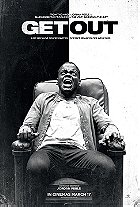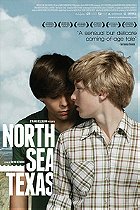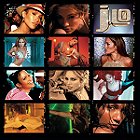You want a single disc assortment of Smokey Robinson and the Miracles’ combination of tear-stained love songs and straight-up party starters? Then seek out The Ultimate Collection, a compilation of twenty-five songs covering all the biggest hits, some lesser known greats, and a smattering of smartly chosen rarities. The Ultimate Collection was a series of seventeen albums covering the biggest, best of Motown’s enviable staple of artists, but Smokey Robinson and the Miracles’ entry may tower above the others with its sheer artistic dominance.
The Ultimate Collection also makes one hell of an argument, backed up with plenty of evidence, for Smokey Robinson as one of the great writers of the rock era. He’s a man who belongs in the same breath as canonized Lennon/McCartney, Brian Wilson, and the acknowledge might of the Brill Building writers. Not that Smokey is hurting for deserved acclaim or praise for his artistry, legacy, and enduring works, but his placement needs a higher look. He could make a lovelorn lyric sing, flip, or dance depending on the moment.
Going to a Go-Go, the greatest studio album the group released, gets a deserving five selections, all of them classics (“The Tracks of My Tears,” “Ooo Baby Baby,” “Choosey Beggar,” “Going to a Go-Go,” “My Girl Has Gone”). It’d be easy to just list these five songs off as both reason enough to seek this out and throw in a few randomly chosen selections like “The Tears of a Clown” or “I Second That Emotion,” but that would be a disservice to so many of the other jewels just waiting to make you boogey or cry along.
It would be too easy to just write at great length about these songs and that particular album. It’s one of the greatest ever released, and a personal favorite of mine. In order to give more shine to songs not off of Going to a Go-Go, I’m going to highlight other choices for the standout tracks. There’s more than enough gorgeous, lush music to choose from that not recommending “The Tracks of My Tears” or “Ooo Baby Baby” won’t feel like some kind of slight.
One of the oldest songs here is “Way Over There,” one of the first proper Motown releases and produced by Berry Gordy, is a glimpse of the genius to come. Robinson’s vocals are impassioned with his voice frequently breaking into a pleasing rasp or swooping into a desperate falsetto. Claudette Robinson answers his pleas with a honey-sweet “come to me, baby,” and “Way Over There” is the first genius pop song from a man who would go on to write dozens and dozens more for himself and numerous others.
But it’s not all silver-tongued romanticism from the Miracles. Anyone who’s watched their set during The TAMI Show knows that they could throw a scorching party. “Mickey’s Monkey” is a comical little ditty that still boogies. The handclaps, call-and-response vocals, and the demands to do “the Monkey” dance mark it as an essential piece of early-60s dance anthems.
This portion of the Miracles output gets lesser audio time, but that makes sense. After all, Robinson was at his best when playing debonair romantic. The heart wrenching nature of “You’ve Really Got a Hold on Me” and “We’ve Come Too Far to End It Now” finds Robinson sobbing and the Miracles acting as a chorus of misery. These are the hits that made his legacy, and it makes sense that the tear-stained ballads and flirty love songs get the biggest chunk of time here. A better title for this would be Essential Listening.
DOWNLOAD: “You’ve Really Got a Hold on Me,” “Mickey’s Monkey,” “We’ve Come Too Far to End It Now”
 Login
Login
 Home
Home 95 Lists
95 Lists 1531 Reviews
1531 Reviews Collections
Collections
 0 comments,
0 comments, 







